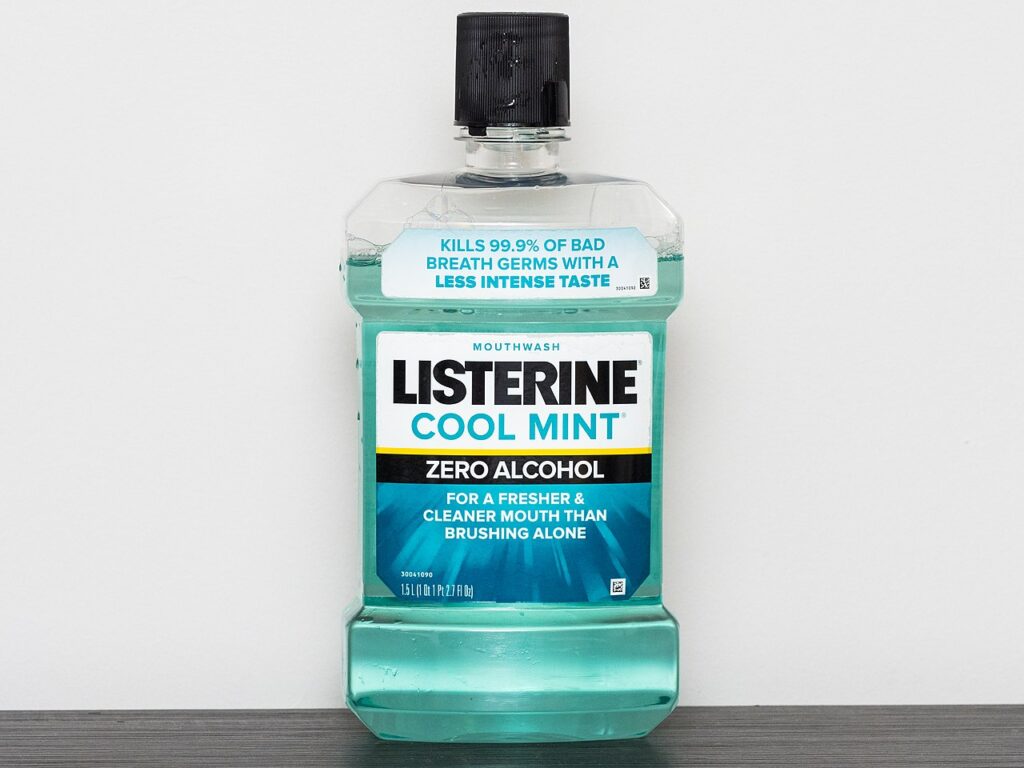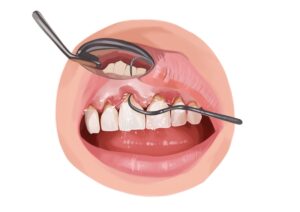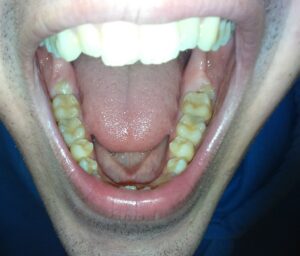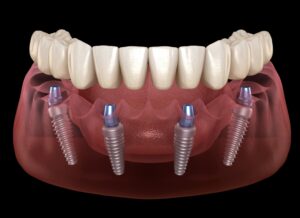Bad breath (called halitosis by doctors) is a common problem. The American Dental Association estimates that 1 in 2 people have had it at least once in their lifetime. It’s something that can cause a great deal of embarrassment with romantic partners, friends, and colleagues. When severe, bad smelling breath can lead to anxiety and loss of self-confidence.
Given that it is such a common problem, it’s no surprise that supermarket shelves are overflowing with mouthwashes, toothpastes, mints, and gums that claim to get rid of bad breath permanently. But the truth is that these products are a temporary solution, because they don’t address the underlying cause of unpleasant smelling breath.
Please continue reading to find out some of the common causes of bad smelling breath. We will also talk about some solutions to get rid of bad breath.
Bad Breath Causes
There are several possible reasons for bad breath. Some of them are harmless, while others can be more serious and require dental or medical evaluation. In approximately 90% of people, the problem originates in the mouth.
Foods can cause bad breath
Certain foods and drinks that have a strong smell, such as garlic, onions, spices, and coffee, can give an unpleasant odor to your breath when you exhale.
Bacteria
When you chew, small food particles can get trapped between your teeth. These food particles are a hotbed for bacterial growth. The bacteria produce foul odors and can lead to bad smelling breath.
Dry mouth
Saliva plays an important role in keeping your mouth clean by helping to remove odor-causing food particles. People who have dry mouth (the medical term for it is xerostomia) can develop bad breath due to a lack saliva. This can occur in certain medical conditions. Also, it’s natural to have a dry mouth during sleep. It causes what is typically called “morning breath.”
Tobacco products and bad breath
Smoking cigarettes and using other types of tobacco products can cause a foul odor in your breath. In addition, smoking increases the risk of gum disease, which can also lead to unpleasant breath. What’s more, smokers often have a poor sense of smell and are typically unaware that they have foul-smelling breath.
Infections and other medical conditions
Infections in the mouth, such as gum disease, tooth decay, or mouth sores can lead to bad breath. Foul-smelling breath can also develop if you have healing wounds in your mouth after dental procedures. Some nose, mouth, and throat conditions like postnasal drip or chronic inflammation in the nose or sinuses can contribute to bad-smelling breath. People who have gastroesophageal reflux disease (GERD) and acid reflux may have an unpleasant odor to their breath as well.
Medications
Certain medications can cause bad breath as a side effect due to chemicals released into the breath. Other medicines can cause dry mouth, which, in turn, can give an unpleasant smell to your breath.
Solutions for Bad Breath
Practice good oral hygiene
Poor oral hygiene is a common cause of bad smelling breath. One way to keep your breath smelling minty fresh is by brushing your teeth twice a day and flossing daily. This ensures you don’t have an overgrowth of bacteria in your mouth. Brushing your teeth after meals is also a good way to reduce bad breath. If you wear dentures, don’t forget to clean them too. Remember to change your toothbrush every 3-4 months.
Get saliva flowing
You can prevent dry mouth and bad-smelling breath by keeping saliva flowing in your mouth. Eating healthy foods that require a lot of chewing, such as fruits and vegetables, is a good way to do this. Another good way is chewing sugar-free gum or sucking on sugar-free candy. If you have severe dry mouth, it’s important to get evaluated by a medical professional to identify the cause. Your dentist may recommend artificial saliva to keep your mouth moist.
Quit smoking
Giving up tobacco products will not only improve the smell of your breath but also ensure overall better health and quality of life.
Use a mouthwash and/or antibacterial toothpaste for bad breath
These are temporary solutions and they don’t address the cause of the bad smell to your breath, but they can help to kill bacteria in the mouth.
Get a professional cleaning
A professional cleaning at a dental office can remove plaque buildup from your teeth. It also gives your dental professional a chance to identify any potential breeding grounds for bacteria and fix the problem.
Keep up with dental appointments
If home remedies for bad breath don’t work, make an appointment to see your dentist. There could be something else going on causing your bad smelling breath, which needs to be treated. Your dentist will either find and fix a problem in your mouth or refer you to a primary care doctor for further evaluation.
It’s also important to keep up with regular dental checkups. Dentists recommend that people with a generally healthy mouth come in twice a year to have their mouths examined. Regular checkups allow your dentist to find any problems like dry mouth, tooth decay, or gum disease and treat them before they cause complications.
Need a dentist?
If you are looking for a dentist for bad breath treatment or general dental care, Express Dentist can help. We have a network of trusted dental professionals nationwide and can connect you to leading providers in your area. Get in touch with Express Dentist today and say goodbye to bad breath forever.
About the author
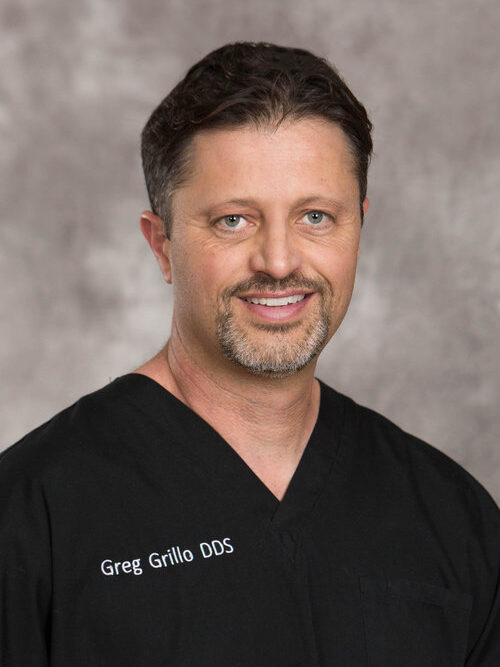
Dr. Greg Grillo
Dr. Greg Grillo DDS studied at the University of Washington where he received a bachelors degree with Honors and later attended dental school on the same campus. Following school Dr. Greg served in the United States Navy as a dental officer. During this time he received advanced training in specialty areas of dentistry while also treating families of members of the military.
As well as sharing valuable information on dentistry and oral health, Dr. Greg remains a practicing dentist to this day. He works with families in the Okanogan Valley where he lives with his wife and three children.

